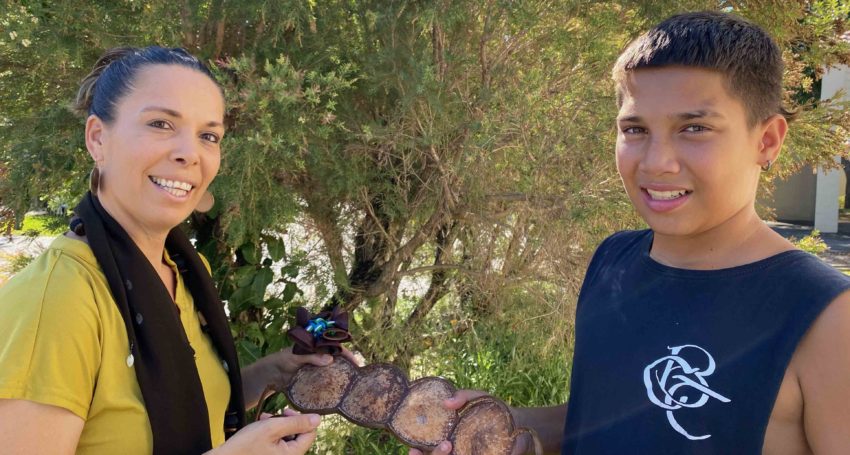Traditional Owners: knowledge keepers
Features
“My people’s knowledge is not taught through sitting in a classroom, researching on Google or going to a university to study, as it is the type of knowledge that can only be taught and passed down through hours upon hours of walking, sitting, speaking and most importantly listening to Elders, family members, community and spirit,” says Kuku Yalanji Traditional Owner Lalania Tusa in the new anglican focus series, ‘What is a Traditional Owner?’

Story Timeline
What is a Traditional Owner?
There are times when I sit and reflect on the years gone by and the important and valuable cultural knowledge that has been passed on to me by my mother, grandmother, grandfather, aunties, uncles, older sister, older brother, cousin-sisters and cousin-brothers. My people’s knowledge is not taught through sitting in a classroom, researching on Google or going to a university to study, as it is the type of knowledge that can only be taught and passed down through hours upon hours of walking, sitting, speaking and most importantly listening to Elders, family members, community and spirit.
Advertisement
My family comes from the Daintree Rainforest in Mossman in Far North Queensland and are one of the seven Traditional Owner families who have been living and breathing on Kuku Yalanji land for generations upon generations.
Growing up in the rainforest, I was taught about the traditional uses of plants, medicines and bush tucker. I would sit for hours and strip Kukan (black palm) with mussel shells for my grandmother to weave traditional dilly bags and baskets; this practice was then passed down and taught to me to carry on. I have been taught the differences between men’s and women’s business; practised lore – which is unwritten and refers to knowledge, beliefs, rules and customs within my culture; and, followed the seasons through signs of flora and fauna to gather foods out on country.
I have been very fortunate to be able to keep my cultural teachings alive through sharing this knowledge with the young children that I work with on a daily basis through my visits into the homes of young Aboriginal and Torres Strait Islander children who have been removed from their parents and are living in foster and kinship care.
Each child in care is on their own journey and I have had the privilege of sharing my knowledge through making damper with a young girl who has always wanted to make damper but didn’t know anyone that could show her. We cooked the damper together, just like my grandmother taught me and now the young girl can carry this on as she gets older in her family.
Advertisement
On another occasion I have taken a seed pod that grows on my traditional Country to a foster home to share with a sibling group of four. The children were amazed at how the one seed pod (called a burnie bean) has so many uses. It is used for fishing (the white powder inside the bean stuns fish), muscular healing and as a dance instrument. This gave the children the opportunity to learn and take part in passing on the cultural knowledge.
It is that simple – through cultural understanding and connection you gain a deeper, richer and more valued understanding of what the Elders have always been trying to maintain and pass on.
My family have always openly shared the practices and knowledge of Aboriginal culture with others, both First Nations peoples and non-Indigenous in order to help bridge the gap and divide between people of different ethnicities.
Knowledge is power – through combining the traditional knowledge of our Ancestors and the knowledge of today’s society there is room for greater learning and understanding of how to work as one to maintain, respect and take care of this great Country.
The Rainforest is part of my heart and I will always be drawn back to my mother’s country, even if it is only for a short time and a visit.





